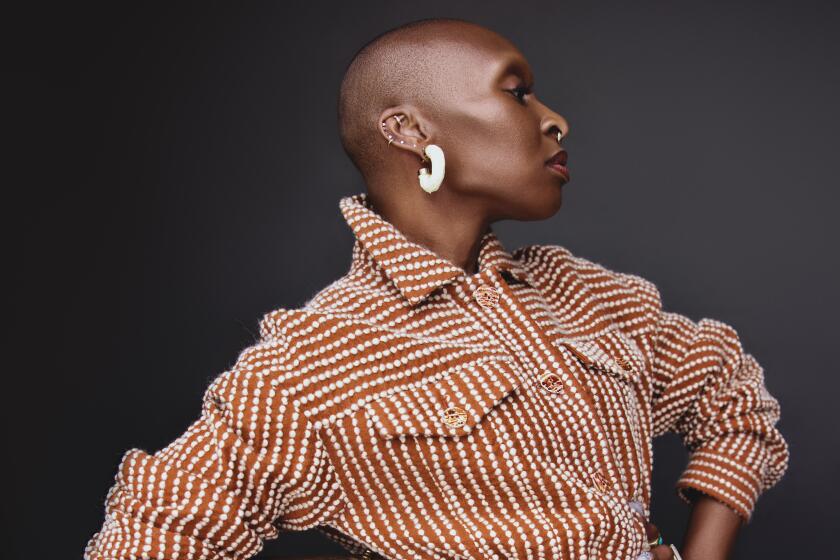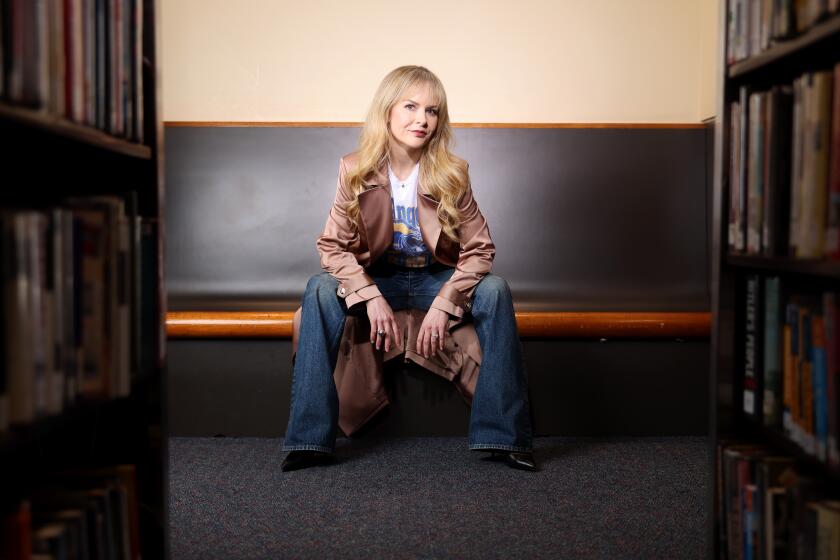Movie review: ‘Weekend’
- Share via
“Weekend” presents 48 hours in the lives of two gay men who are almost immediately attracted to each other, then have to figure out what that means in the complex tapestry of their individual situations.
Written, directed and edited by Britain’s Andrew Haigh, “Weekend” is a moving and empathetic look at how relationships develop, at how people fall in love and what that does and doesn’t do to their lives. It’s an observational film that offers generous satisfactions, but there are challenges along the way.
Chief among those is the film’s unblinking sexual candor, in language even more than action. Though it goes hand in hand with “Weekend’s” faultless emotional intimacy, that frankness represents a kind of sharing that takes some getting used to.
Helping in that process are the exceptional performances by the film’s two stars, young British actors Tom Cullen and Chris New. Their work is nuanced, delicate and deeply felt from the first moment we see them to the last.
It’s Russell (Cullen) we meet first in the out of the way city of Nottingham, going to a potluck dinner with a group of straight friends and looking like the quiet, soulful man we soon find him to be.
On the way home, Russell impulsively stops at a gay bar and locks eyes for a brief moment with the intense Glen (New). When the next day begins, they are together in Russell’s bed, dealing with the morning-after awkwardness of people who have had sex but barely know each other.
Glen turns out to be a nervy provocateur, as brash as his canary yellow hoodie yet upstanding enough to yell at some gay-bashers he hears through Russell’s window.
Glen has a tape recorder with him and insists that Russell, as part of an art project he is working on, record his thoughts on the previous night’s encounter. Because he’s shyly reluctant, Russell is upbraided by his new friend, but he holds his own, quietly telling Glen, “I thought we were having a nice time” and displaying a determination to leave it at that.
The two men exchange digital contact information when Russell has to leave for his job as a lifeguard, but it is unclear to them, and to us, whether this relationship has much of an emotional future. But it does.
Perhaps because Russell and Glen are different personalities from different worlds, they are clearly intrigued with each other, but each in his own way is wary, uncertain and insecure. A situation that is intensified the next time they meet, when Glen reveals that he is about to move to Portland, Ore., (it would have been New York in the not so distant past) for a two-year art course.
Though both men understand that the clock is ticking, they continue to meet for more conversation, drugs and more sex, and gradually reveal themselves to each other in ways that are compelling on both personal and political levels.
Not surprisingly, Russell and Glen have different ideas about living in a predominantly straight world. Russell believes in enduring relationships and seems to be relatively content, while Glen, who says he doesn’t do boyfriends, bristles with articulate rage about, among many other things, straight people who “like us as long as we don’t shove it down their throats.”
More involving than the sexual candor is the way these two men end up exposing themselves to each other emotionally. Even in the brief period of time they have together, we can see them opening up to each other and learning from the experience, which is as rare on screen as it is in life.
Because it is intent on being honest, “Weekend” refuses to tip its hand as to how this relationship will end. But what is clear is that no matter what happens, the influence these men have on each other will last considerably longer than a weekend.
More to Read
The biggest entertainment stories
Get our big stories about Hollywood, film, television, music, arts, culture and more right in your inbox as soon as they publish.
You may occasionally receive promotional content from the Los Angeles Times.











